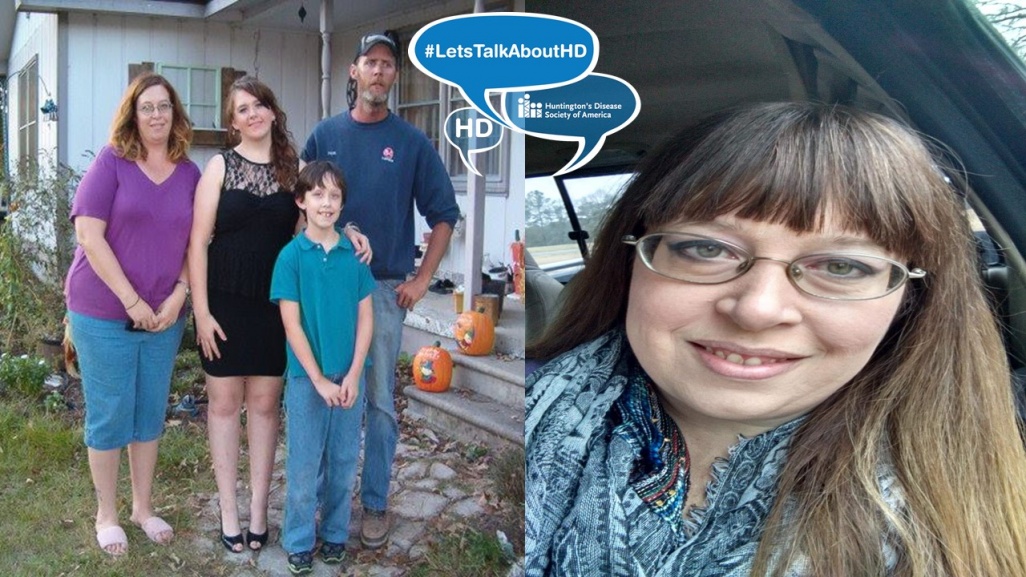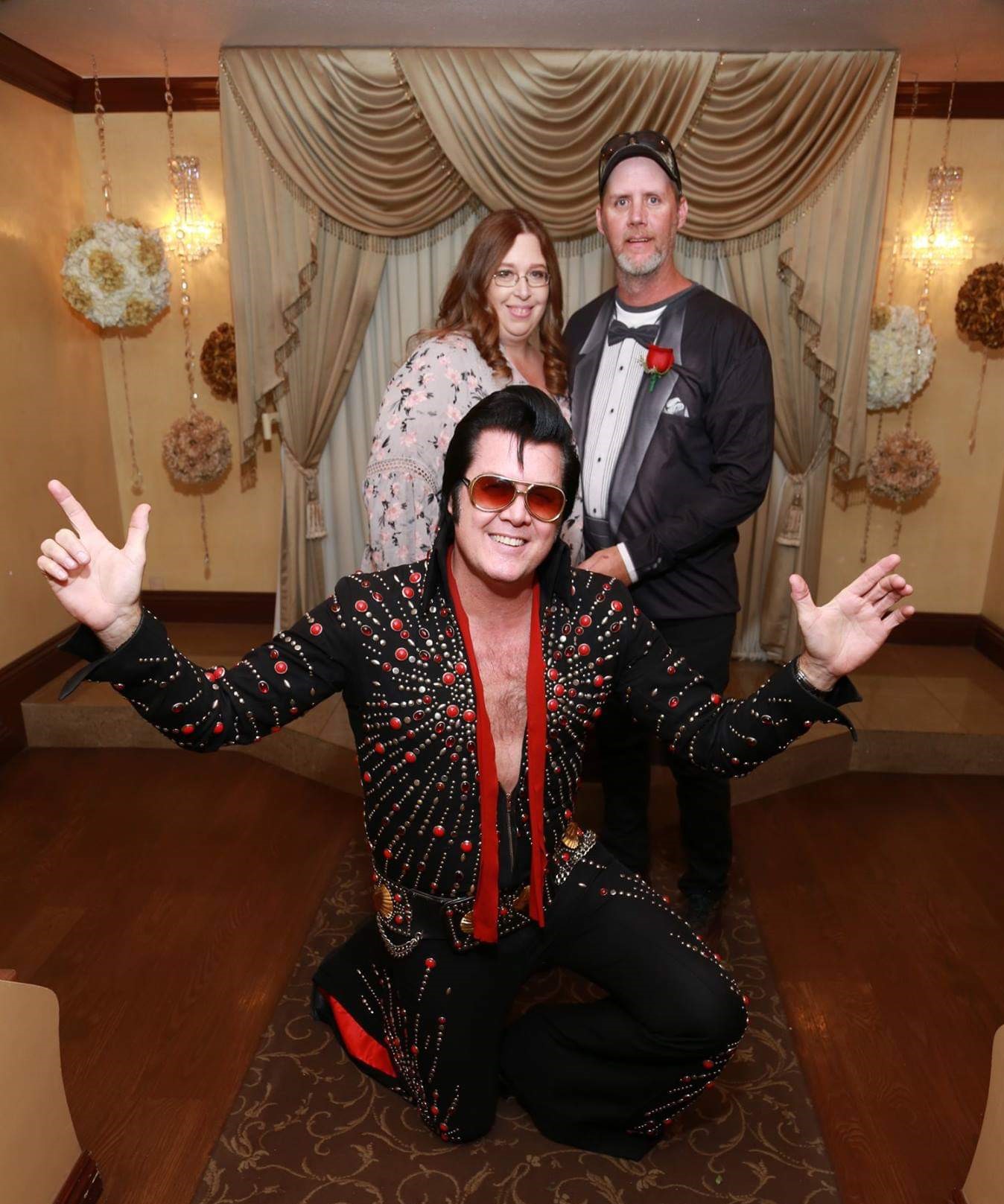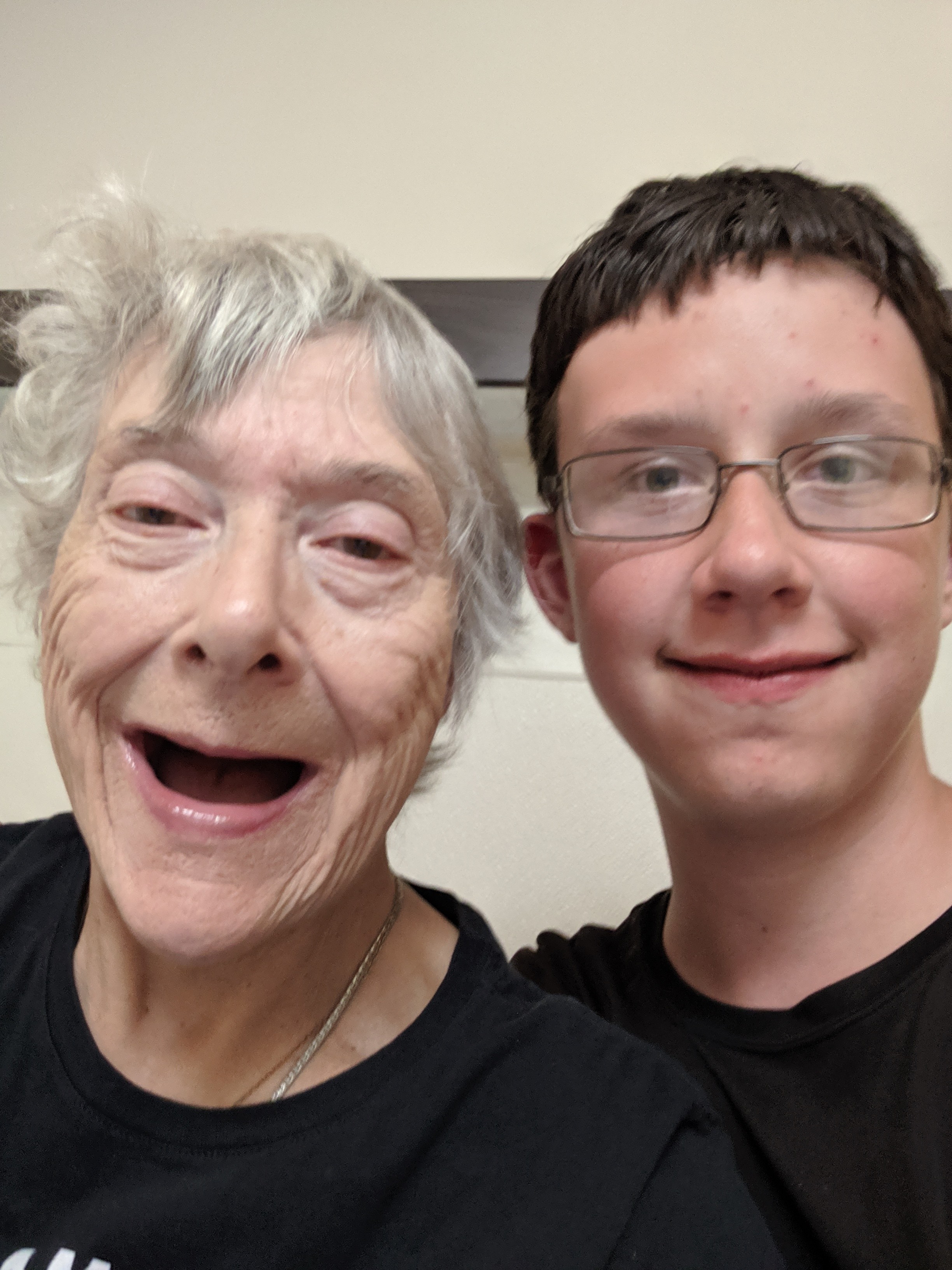
By Matthew Santamaria (msantamaria@hdsa.org)
Georgia resident Kelly Pressy’s mother was a post-war child In Germany who did not know who her father was. Her mother was adopted by an American military couple. They did not know that there was a brother who was put in an orphanage because their mom could not take care of him.
Kelly was one of two children. Her father was diagnosed with Multiple Sclerosis (MS), potentially disabling disease of the brain and spinal cord. He had MS for more than thirty years and resided in a nursing home.
When Kelly was only 15-years-old, her mother left the family. Her younger brother was only 12-years-old at the time. According to Kelly, her mother had a bad childhood and suffered with depression. Kelly did not tell any of her family members that her mother left.
After graduating high school, her brother went into the military.
In the mid 2000’s, Kelly received a phone call from a social worker explaining that her mother was in North Carolina and was being tested for Parkinson’s disease. That next day, the social worker called again and said her mother was diagnosed with Huntington’s disease (HD).
HD is a fatal genetic disorder that causes the progressive breakdown of nerve cells in the brain. It deteriorates a person’s physical and mental abilities usually during their prime working years and has no cure.
The symptoms that her mother had were connected to HD. HD is described as having ALS, Parkinson’s and Alzheimer’s diseases – simultaneously. Symptoms include personality changes, mood swings, depression, forgetfulness, impaired judgement, unsteady gait, involuntary movements, slurred speech, difficulty in swallowing, and significant weight loss.
Kelly later learned that the uncle she never met suffered with the symptoms of HD.
During this time period, Kelly was married with a six-year-old. Every child of a parent with HD has a 50/50 chance of inheriting the faulty gene that causes Huntington’s disease.

According to Kelly, she made the mistake of going online and learning more about the disease. This made her worry even more as she regrets not going through the right steps of the testing process which allows you to meet the right doctors to educate you about the disease and make sure you are mentally ready as well.
The decision to get genetically tested is difficult to make. Each year, 5-10% are tested. It is never the right or wrong decision to be tested. There are people that see no benefit in knowing that they will develop the disease while others want to know in order to make informed choices about their future. It can take up to several weeks to receive your results from the genetic testing center.
Kelly tested positive for HD. It was hard for the family to hear the results.
Her husband noticed changes in her which include unable to craft her garden, trouble making decisions, and different words that she was unable to say. Kelly and her husband are educating their son about HD.
Kelly has learned more about HD by going to camps and support groups. She has had a great experience going to support groups in Atlanta. However, she has taken a break from the meetings due to long distance and trying not to think about HD.
Her family has praised the work of Emory University as she has participated in a drug trial at the center. This is one of the 50 HDSA Centers of Excellence that provide an elite team approach to HD care and research. Professionals have extensive experience working with families affected by HD and work together to provide families the best HD care program.
Currently, Kelly’s mother is in a nursing home. Kelly reminds herself to separate the disease from her mother. Her mother was not there when she was younger but she is here now. Kelly knows she has a great support system including her husband, son, and step-daughter. Kelly will not let HD control her life and think different of her mother.

Kelly has a message for the HD Community:
“HAVE HOPE AND KEEP FIGHTING. We have many trials to look forward to. I want a bright future for my family.”
###
Huntington’s disease is a fatal genetic disorder that causes the progressive breakdown of nerve cells in the brain. It deteriorates a person’s physical and mental abilities usually during their prime working years and has no cure. Every child of a parent with HD has a 50/50 chance of inheriting the faulty gene that causes Huntington’s disease. Today, there are approximately 41,000 symptomatic Americans and 200,000 at-risk of inheriting the disease. In less than 10% of cases, juvenile Huntington’s disease (JHD) affects children & adolescents. JHD usually has a more rapid progression rate than adult onset HD; the earlier the onset, the faster JHD progresses. HD is described as having ALS, Parkinson’s and Alzheimer’s diseases – simultaneously. HD is characterized by a triad of symptoms, including progressive motor dysfunction, behavioral disturbance and cognitive decline.
The Huntington’s Disease Society of America is the premier nonprofit organization dedicated to improving the lives of everyone affected by HD. From community services and education to advocacy and research, HDSA is the world’s leader in providing help for today and hope for tomorrow for people with HD and their families.
To learn more about Huntington’s disease and the work of the Huntington’s Disease Society of America, visit www.HDSA.org or call 1(800)345-HDSA.
This is a story featuring a personal experience with Huntington’s disease. If you would like to have your story told please contact Matthew Santamaria at msantamaria@hdsa.org
Georgia resident Kelly Pressy’s mother was a post-war child In Germany who did not know who her father was. Her mother was adopted by an American military couple. They did not know that there was a brother who was put in an orphanage because their mom could not take care of him.
Kelly was one of two children. Her father was diagnosed with Multiple Sclerosis (MS), potentially disabling disease of the brain and spinal cord. He had MS for more than thirty years and resided in a nursing home.
When Kelly was only 15-years-old, her mother left the family. Her younger brother was only 12-years-old at the time. According to Kelly, her mother had a bad childhood and suffered with depression. Kelly did not tell any of her family members that her mother left.
After graduating high school, her brother went into the military.
In the mid 2000’s, Kelly received a phone call from a social worker explaining that her mother was in North Carolina and was being tested for Parkinson’s disease. That next day, the social worker called again and said her mother was diagnosed with Huntington’s disease (HD).
HD is a fatal genetic disorder that causes the progressive breakdown of nerve cells in the brain. It deteriorates a person’s physical and mental abilities usually during their prime working years and has no cure.
The symptoms that her mother had were connected to HD. HD is described as having ALS, Parkinson’s and Alzheimer’s diseases – simultaneously. Symptoms include personality changes, mood swings, depression, forgetfulness, impaired judgement, unsteady gait, involuntary movements, slurred speech, difficulty in swallowing, and significant weight loss.
Kelly later learned that the uncle she never met suffered with the symptoms of HD.
During this time period, Kelly was married with a six-year-old. Every child of a parent with HD has a 50/50 chance of inheriting the faulty gene that causes Huntington’s disease.

According to Kelly, she made the mistake of going online and learning more about the disease. This made her worry even more as she regrets not going through the right steps of the testing process which allows you to meet the right doctors to educate you about the disease and make sure you are mentally ready as well.
The decision to get genetically tested is difficult to make. Each year, 5-10% are tested. It is never the right or wrong decision to be tested. There are people that see no benefit in knowing that they will develop the disease while others want to know in order to make informed choices about their future. It can take up to several weeks to receive your results from the genetic testing center.
Kelly tested positive for HD. It was hard for the family to hear the results.
Her husband noticed changes in her which include unable to craft her garden, trouble making decisions, and different words that she was unable to say. Kelly and her husband are educating their son about HD.
Kelly has learned more about HD by going to camps and support groups. She has had a great experience going to support groups in Atlanta. However, she has taken a break from the meetings due to long distance and trying not to think about HD.
Her family has praised the work of Emory University as she has participated in a drug trial at the center. This is one of the 50 HDSA Centers of Excellence that provide an elite team approach to HD care and research. Professionals have extensive experience working with families affected by HD and work together to provide families the best HD care program.
Currently, Kelly’s mother is in a nursing home. Kelly reminds herself to separate the disease from her mother. Her mother was not there when she was younger but she is here now. Kelly knows she has a great support system including her husband, son, and step-daughter. Kelly will not let HD control her life and think different of her mother.

Kelly has a message for the HD Community:
“HAVE HOPE AND KEEP FIGHTING. We have many trials to look forward to. I want a bright future for my family.”
###
Huntington’s disease is a fatal genetic disorder that causes the progressive breakdown of nerve cells in the brain. It deteriorates a person’s physical and mental abilities usually during their prime working years and has no cure. Every child of a parent with HD has a 50/50 chance of inheriting the faulty gene that causes Huntington’s disease. Today, there are approximately 41,000 symptomatic Americans and 200,000 at-risk of inheriting the disease. In less than 10% of cases, juvenile Huntington’s disease (JHD) affects children & adolescents. JHD usually has a more rapid progression rate than adult onset HD; the earlier the onset, the faster JHD progresses. HD is described as having ALS, Parkinson’s and Alzheimer’s diseases – simultaneously. HD is characterized by a triad of symptoms, including progressive motor dysfunction, behavioral disturbance and cognitive decline.
The Huntington’s Disease Society of America is the premier nonprofit organization dedicated to improving the lives of everyone affected by HD. From community services and education to advocacy and research, HDSA is the world’s leader in providing help for today and hope for tomorrow for people with HD and their families.
To learn more about Huntington’s disease and the work of the Huntington’s Disease Society of America, visit www.HDSA.org or call 1(800)345-HDSA.
This is a story featuring a personal experience with Huntington’s disease. If you would like to have your story told please contact Matthew Santamaria at msantamaria@hdsa.org
